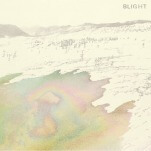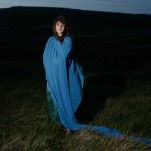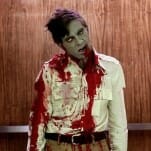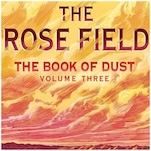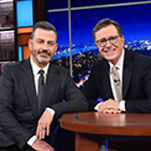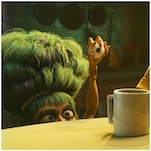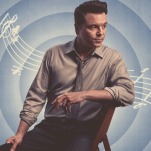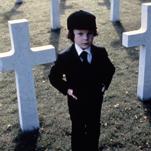The Lost City Is a Diamond in the Rom-Com Rough
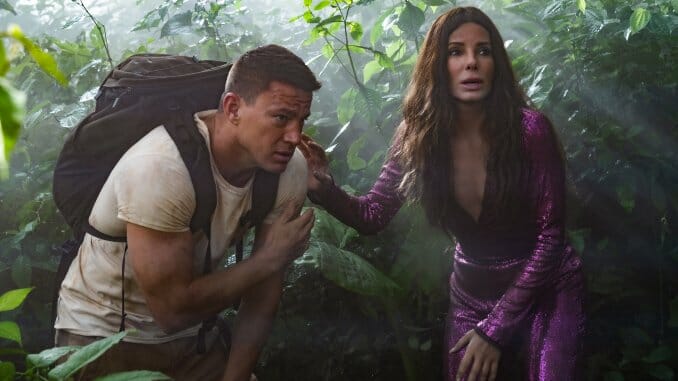
After the death of her husband, the last thing smartypants archaeologist-turned-paperback-romance-author Loretta Sage (Sandra Bullock) wants to do is leave her house, let alone go on a book tour at the behest of her caring but pushy publisher/publicist Beth (Da’Vine Joy Randolph) and painfully millennial social media manager Allison (Patti Harrison, a star). Being a trouper, Loretta suits up into her uncomfortable glittery purple jumpsuit (it’s on loan) and begrudgingly puts on a fake smile onstage next to Alan (Channing Tatum), the well-meaning but dimwitted (and yes, hot) himbo cover model who portrays the hunky leading man of Loretta’s books, Dash McMahon.
As if leaving her house in the first place weren’t bad enough, Loretta is mysteriously kidnapped by Abigail Fairfax (Daniel Radcliffe), the psychotic child of a billionaire media mogul locked in a Succession-like feud with his more successful siblings. Somehow, it gets even more twisted: Abigail is hellbent on discovering the “Crown of Fire” in the middle of a remote Atlantic island, and believes Loretta is the only one who can decipher the treasure map. Secretly in love with her, Alan hops on a plane and enlists the help of Jack Trainer (Brad Pitt) to rescue Loretta from Abigail’s monied clutches, deep within the jungle.
While the explosive, action-packed sequences are a lot of fun, and an essential element of the adventure genre, what sets The Lost City apart from recent, more tired blockbuster adventure/comedy fare (looking at you, Uncharted) is the humorously human moments that lead to a genuine connection between Loretta, Alan and the audience. Instead of falling back on the kind of semi-ironic “so, that happened” style of fourth-wall-breaking writing, directors and co-writers Adam and Aaron Nee take familiar adventure/rom-com cornerstones and repurpose them to find previously undiscovered gems through these personal moments. They are certainly aware of the tropes being toyed with here—dumb guy/smart lady romance, the frame story of Loretta’s novels, the treasure-hunting villian—but they approach these tropes with a freshness that gets the audience invested in its characters.
-

-

-

-

-

-

-

-

-

-

-

-

-

-

-

-

-

-

-

-

-

-

-

-

-

-

-

-

-

-

-

-

-

-

-

-

-

-

-

-






